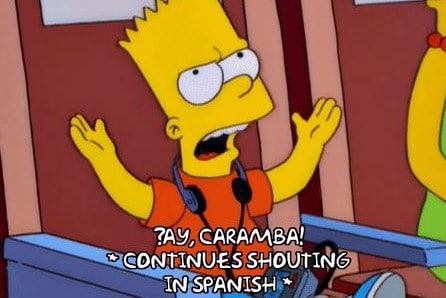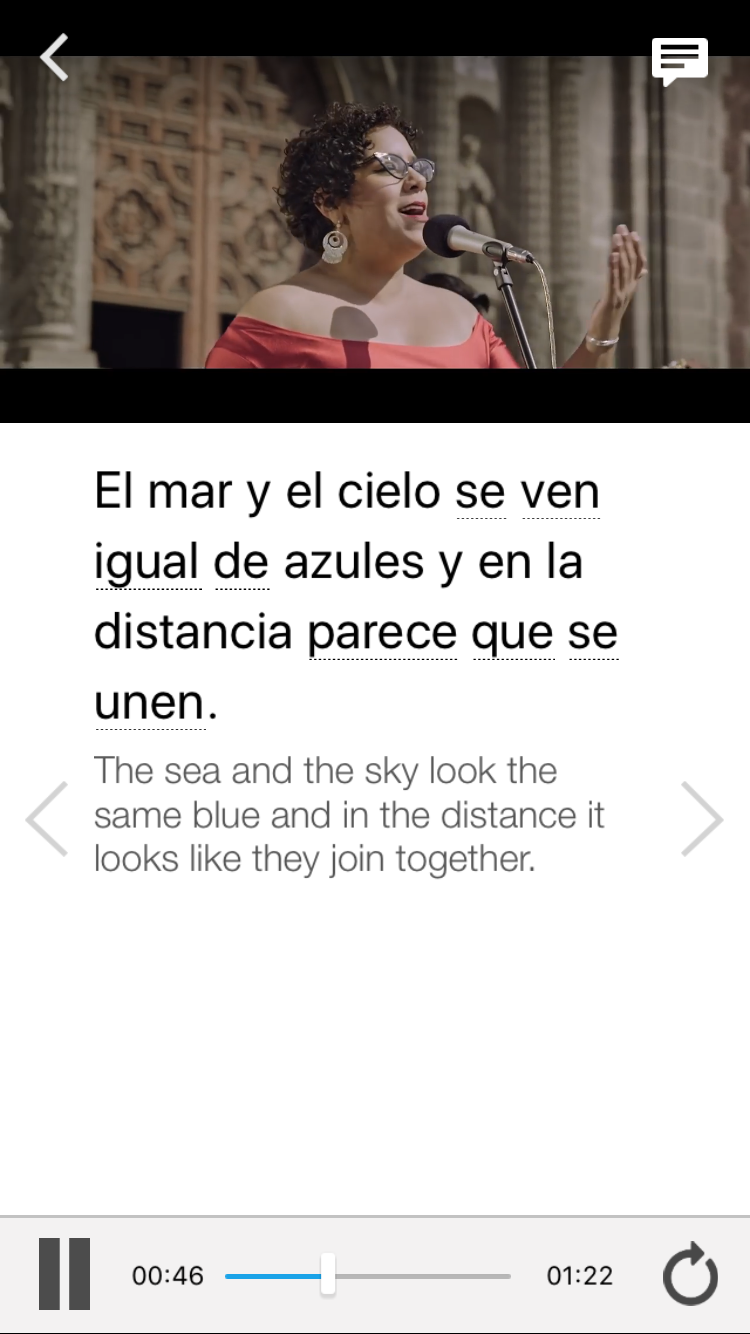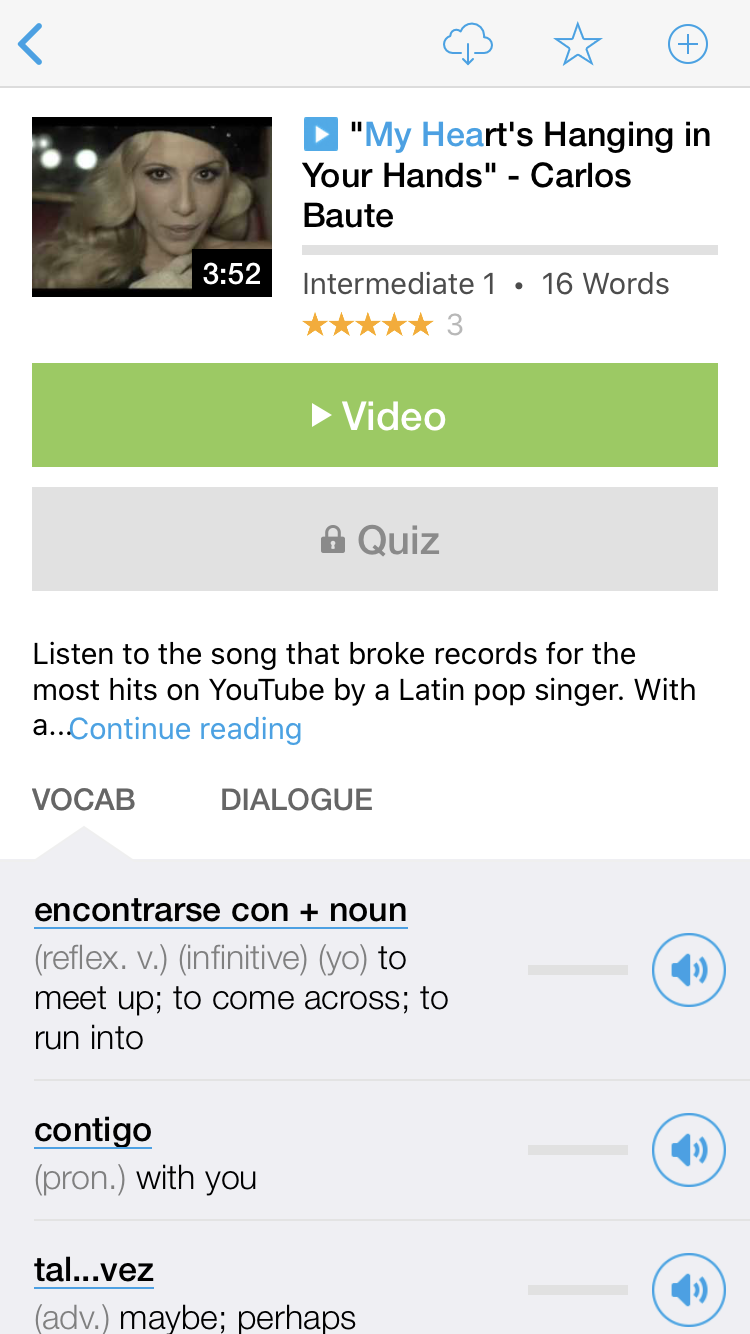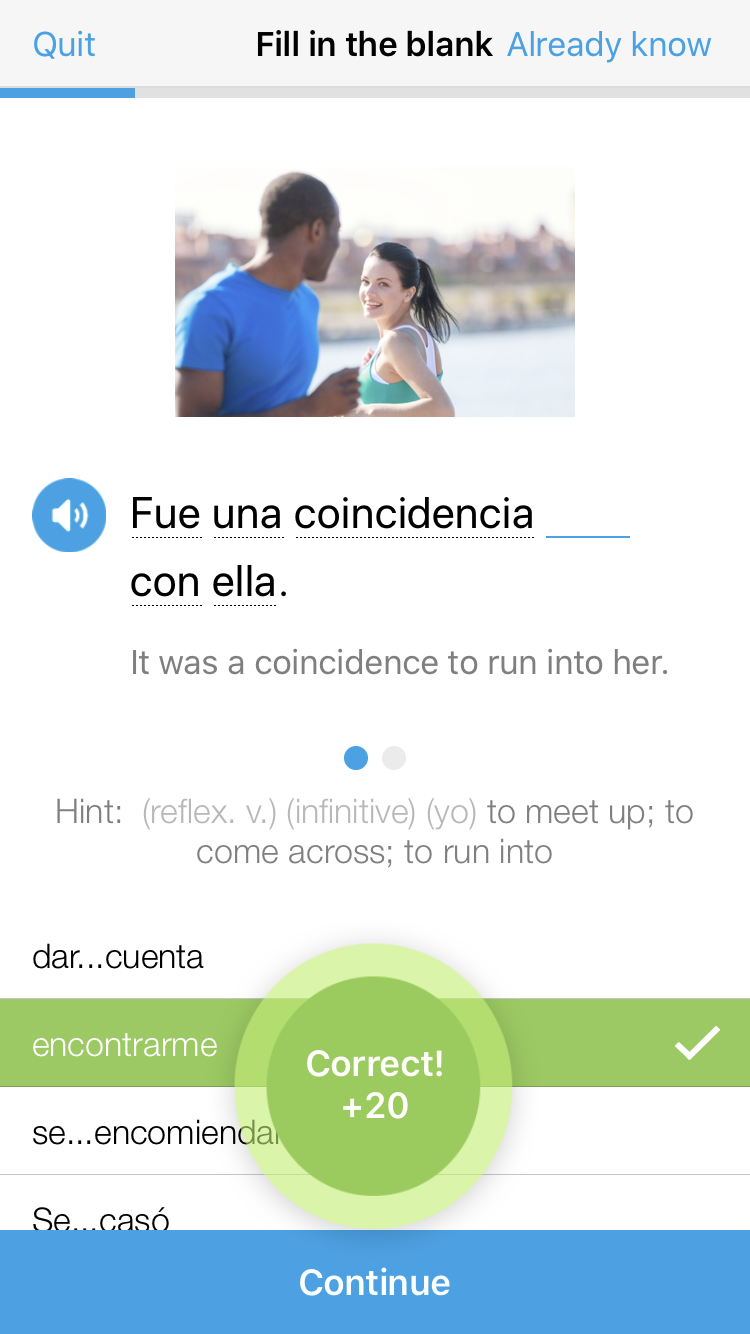
“The Simpsons” has been dubbed into Spanish in both Latin America and Spain.
They’re also dubbed into many other languages which shows that a decent story—even if it’s a cartoon—can still be funny, culturally relevant and entertaining no matter where in the world you are.
But if you think the Simpson family is just entertainment to watch when you’re wasting time or dreaming of donuts—think again!
If you love “The Simpsons” in English, you’ll love learning Spanish with “Los Simpson”! In this guide, I’ll explain how you can watch “The Simpsons” in Spanish, plus introduce you to four great clips to get you started.
Contents
Download:
This blog post is available as a convenient and portable PDF that you
can take anywhere.
Click here to get a copy. (Download)
How to Learn Spanish with “The Simpsons”
“Hiciste tu mejor esfuerzo y fallaste miserablemente. La lección es que nunca debes intentarlo.” (“You tried your best and you failed miserably. The lesson is never to try.”) — Homer Simpson
So… I’m not agreeing with Homer on that. Trying is a good idea—especially when it can be so entertaining.
Watching “Los Simpson” is a powerful way to learn Spanish. The show’s content is relevant and funny and the idiomatic language allows for vocabulary building and cultural learning.
You can often find subtitled episodes, which lets you get some reading practice and serves as a boost for beginning learners who might have trouble following the spoken word. You can start by watching with subtitles, then turn them off to give your listening skills a workout, too.
Write down bits of dialogue. Refer to this list later, after the clip is almost a memory. Don’t be surprised if you understand the vocabulary and phrases! Many people (myself included) retain material with less effort if it’s presented as entertainment.
On that same note, don’t forget to add to your vocabulary list with idioms and phrases you see in the clips. It really is a great opportunity to learn new vocabulary.
If you’re looking for a good app to build flashcard lists with, Anki is one of the best. It lets you create your own flashcards or find shared decks with an incredible amount of customization. You can also create multimedia flashcards on the FluentU program.
Where to Watch “Los Simpson” Clips and Episodes
The Spanish adventures of the Simpson family can be bought on Amazon: “Os Simpsons O Filme” (“The Simpsons Movie”) is intended for Portuguese, Spanish and English audiences (the title is in Portuguese) so the subtitles and audio are available in all three languages.
Another Amazon option is to buy the English DVDs, many of which have Spanish subtitles and dubbing. You can check this in the “Product Details” section (this DVD for Season 20, for instance, has both subs and dubs in Spanish).
You can also find tons of short clips from the Spanish version of the show on YouTube simply by searching for “Los Simpson.”
4 Hilarious “Los Simpson” Clips to Start Learning Spanish
“Bart Star”
The clips from this episode (S9:E6), are a great place to begin your Simpson adventure.
The action translates well: first aid, sports and everyday medical words in Spanish all make an appearance here. Pay special attention to the English subtitles as compared to the Spanish audio to get a taste of how humor translates from one language to another!
“¡Inocente palomita!” (“April Fools!”)
This April Fools episode (S4:E18) is an episode Spanish language learners should watch. Not watch just once, but several times.
Why? Because this classic episode is filled with great dialogue, humor and everyday vocabulary that can really add to anyone’s Spanish conversational abilities.
More importantly, you can find an interesting cultural tidbit in this one. The phrase “Inocente palomita” has nothing to do with April first; instead, it’s called out on the Day of the Holy Innocents, which is celebrated in Mexico and other Spanish-speaking countries on December 28 and has religious origins.
Like April Fool’s Day, this is a day to make jokes and play pranks on each other. So not only does the humor in this episode translate well, you can even learn a bit about culture and traditions through it!
“Homero se come al Señor Tenazas” (“Homer Eats Mr. Pincers”)
In English, this clip (from S10:E7) is called “Homer Buys a Pet Lobster.” You might have noticed by now that not everything translates word-for-word. Instead, the translators make sure to get the content across without losing any of the comedy along the way.
This one has almost emotionally compelling content. It shows that Homer does, indeed, have a soft side—and we don’t just mean his stomach.
His behavior is entertaining in both English and Spanish and it’s clear that there are some issues that cross cultural divides. Issues like the price of lobster, even!
There are lots of common expressions here that are worth learning so take notes and incorporate them into your own conversations. “¡Este es tu gran día!” (“This is your big day!”) is sure to come in handy, even if you’re not holding a lobster.
“El Señor Burns quiere matar al Abuelo Simpson” (“Mr. Burns Wants to Kill Grandpa Simpson”)
This one (S7:E22) has a diabolical little plot and quirky characters. Presented in a style that combines over-the-top action with film noir. In other words, this is a fun action-packed little clip!
There are no (official) subtitles, so it’s perfect for more advanced learners to watch.
Beware: there are several spots that might make you smile and a couple of lines that might become part of your spoken arsenal, like this one: “Él es más listo de lo que parece.” (“He’s more clever than he seems.”)
You’ll also find lots of fun dramatic turns of phrases that might not be used as often in your everyday speech but would come in handy the next time you watch a Spanish drama or soap opera.
Leave “D’oh!” to Homer. Let him make the mistakes while you reap the benefits of learning from his zany antics.
In his own wise words, “El hecho de que no me importe no significa que no entiendo” (“Just because I don’t care doesn’t mean that I don’t understand”). Fortunately, using fun shows to learn Spanish can lead to both understanding and caring. After all, you can’t help but get sucked into the crazy lives of the Simpson family!
So tune in to “Los Simpson” and set yourself up for fun Spanish practice. And if you’re channeling your inner Homer, grab a box of donuts to munch while you’re learning! And with that, we’ll leave you with one last classic quote from Homer:
“Donuts. ¿Hay algo que no puedan hacer?” (“Donuts. Is there anything they can’t do?”)
Download:
This blog post is available as a convenient and portable PDF that you
can take anywhere.
Click here to get a copy. (Download)
And One More Thing…
If you’ve made it this far that means you probably enjoy learning Spanish with engaging material and will then love FluentU.
Other sites use scripted content. FluentU uses a natural approach that helps you ease into the Spanish language and culture over time. You’ll learn Spanish as it’s actually spoken by real people.
FluentU has a wide variety of videos, as you can see here:

FluentU brings native videos within reach with interactive transcripts. You can tap on any word to look it up instantly. Every definition has examples that have been written to help you understand how the word is used. If you see an interesting word you don’t know, you can add it to a vocab list.

Review a complete interactive transcript under the Dialogue tab, and find words and phrases listed under Vocab.

Learn all the vocabulary in any video with FluentU’s robust learning engine. Swipe left or right to see more examples of the word you’re on.

The best part is that FluentU keeps track of the vocabulary that you’re learning, and gives you extra practice with difficult words. It’ll even remind you when it’s time to review what you’ve learned. Every learner has a truly personalized experience, even if they’re learning with the same video.
Start using FluentU on the website with your computer or tablet or, better yet, download the FluentU app.



